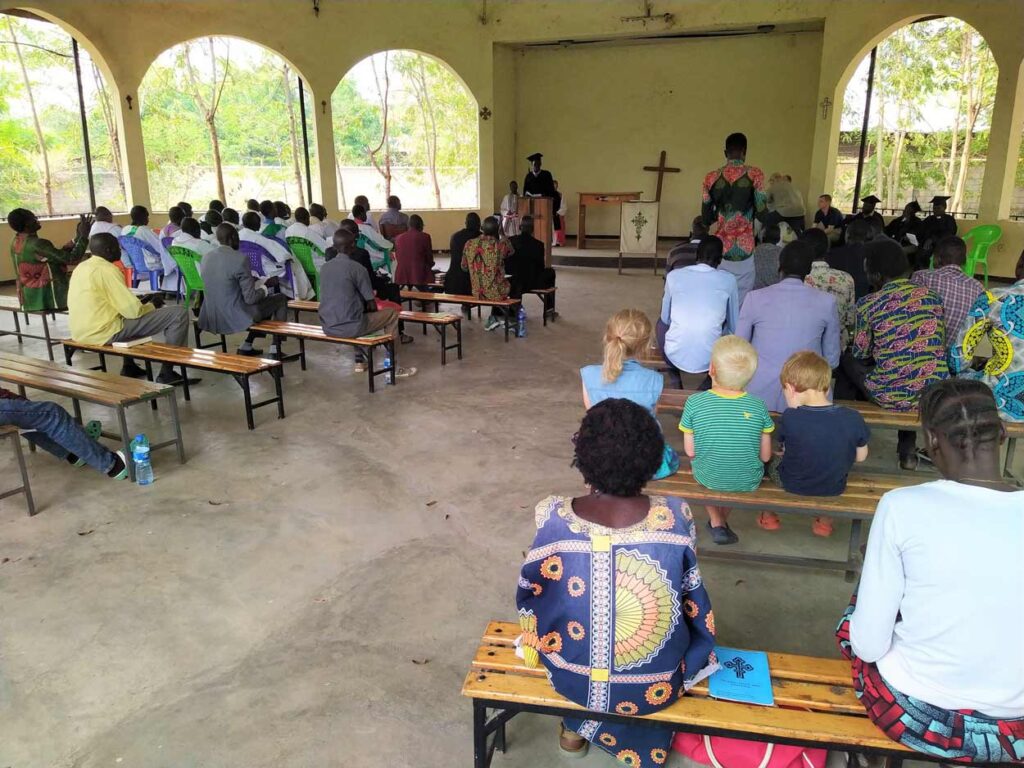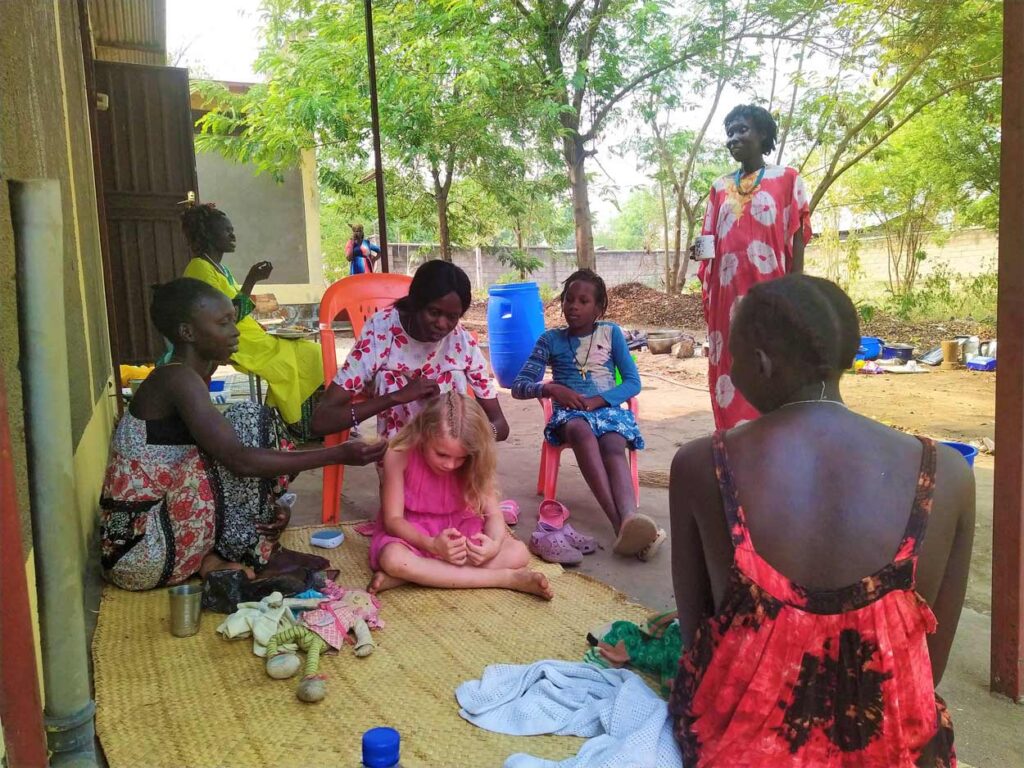No short cuts to beauty
“The lines have fallen for me in pleasant places,” says Suzy Wilson, amazed by falling in love with a place and people of great hardship and great beauty.
By Suzy Wilson
They lined up behind the wooden and splintered cross, priests from all over the Gambella region and further still, among them those who have understood first hand the meaning of the symbol they walked behind – their lives entwined with the brokenness and beauty that comes as Christ followers, knowing they must walk the narrow way. And as they processed they sang a song of praise, low and loud.
It was the day of the Covid-delayed graduation of the third-year students from St Frumentius’ Theological College in Gambella, Ethiopia. What a gift to at last stand among their family and friends and celebrate them.
There is almost nothing here in the eyes of the world, only these six students in a remote area of Africa.
During the ceremony I quietly wept as I listened to a much loved Anuak student describe the significance of his experience at the college – of walking with his Nuer brother and sisters across town to ensure them safe passage when for those long, tedious months tensions had been high. He spoke of his mind transformed as these other students of different ethnic groups became his friends; in a region too often marked by animosity and suspicion, it’s hard to comprehend just how significant this is.

I listened to my husband telling these graduates that he was proud of them and loved them, and exhorting them to continue to love each other.
There is almost nothing here in the eyes of the world, only these six students in a remote area of Africa. But in a place scarred by generations of ethnic conflict and deadly expectations of loyalty, they are choosing Jesus first; the seeds are scattered, and that is everything.
I didn’t know we had fallen in love
Watching the graduation, reuniting with friends and students, and clearing out our house was a little more like closure than I had anticipated, and it wasn’t easy – I didn’t prepare myself that it was actually going to feel quite hard. I grieved.
I didn’t know we had fallen in love with this hot and dusty place.
I didn’t know until we arrived and sat outside our house with our Anuak family chatting, laughing, and drinking coffee while the kids dashed around quickly covering themselves in Gambella sand.
I didn’t know until sweet Grace, who had been a new-born baby last time I held her, wandered in and out of our house just as though it was her own.
Gambella is profoundly marked with hardship and dying, and daily toil. This is true, and it matters. Gambella is also compelling and beautiful…
I didn’t know until we drove through the town and there was vibrancy and life and colour, and as we passed over the mighty Baro river, which in its distinctively lazy yet compelling way dominates the landscape whilst town folk bathe and wash cars and play in its sluggish murky depths.
I didn’t know, because the water here often runs out, and for the week we were there ran brown out of taps.

I wouldn’t have known because it is often difficult and malarial and hot, and there are no easy playmates for our children. But as our visit there drew to an end the kids didn’t want to leave, my daughter suggesting we use the little money she had gathered from the tooth-fairy and various chores to make it possible to stay in Gambella.
Hardship and dying, life and beauty
But we had to go, of course we did; tears fell, carving a way through the dust that had gathered on her face as we drove away from those who had congregated to wish us well, and we made our way back to the airport, back to Addis.
Perhaps she is discovering this secret too, because as I walk and age on this earth I am learning there are no short cuts to beauty, and it looks to me that at its most authentic it can only be appreciated and understood in the fragility of living and the reality of suffering.
Gambella is profoundly marked with hardship and dying, and daily toil. This is true, and it matters. Gambella is also compelling and beautiful, it teems with life and beauty – when I am there it wakes me up, and I see and move and live in a way I don’t experience anywhere else. It draws me in, and I find a freedom.
We now live in Addis, and we are happy here. We live in a compound with space and families, with flowers and trees. If you’re going to live in a huge African city then this is a great way to do so, and we are very grateful.
We are learning Amharic and slowly we’re enjoying meeting others in the neighbourhood that live and work here. The kids and I spend our days homeschooling, reading, playing sport, sitting in little food souks and falteringly trying out our new language. But Gambella is never far from our minds, and will always be a part of our lives. Our time and experience there is imprinted on us, it has moulded us. We want to continue walking with those students who have become friends, we want to continue sitting with our friends who have become family.
The lines have fallen for me in pleasant places, indeed I have a beautiful inheritance.
Psalm 16:6